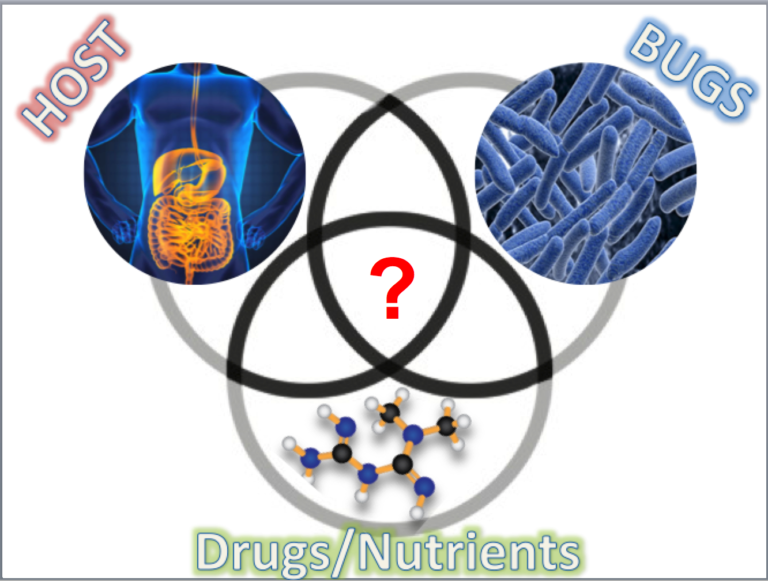
Bacteria as Macromolecular Machines regulating the effect of Drugs and Diet on Host Health and Lifespan
The main interests of our lab are the molecular mechanisms underlying metabolic diseases and ageing. These morbidities have a profound impact, both medically and also social and economically.
Animals typically live in close association with commensal and symbiotic microbes. Recent studies have revealed that the status of gut microbiota can influence nutrition-related syndromes such as obesity and type-2 diabetes, and perhaps ageing. However, to-date we know very little about how such interactions are regulated. The suspected role of host-microbiota interactions in human disease and regulation of metabolism is largely derived from observational studies, and it is often difficult to establish whether changes in microbiota are cause or effect of pathology. Therefore we lack understanding of how microorganisms can precisely regulate the response of key components in metabolic health and longevity. Thus, it is important to understand how these microbial communities determine human physiology, and if they can be targeted by drugs to improve human health. Of particular interest is the role of microbiota in mediating effects on drugs targeted at metabolic disease and ageing. Our lab uses a combination of model organisms including C. elegans and rodents to address these key questions.


